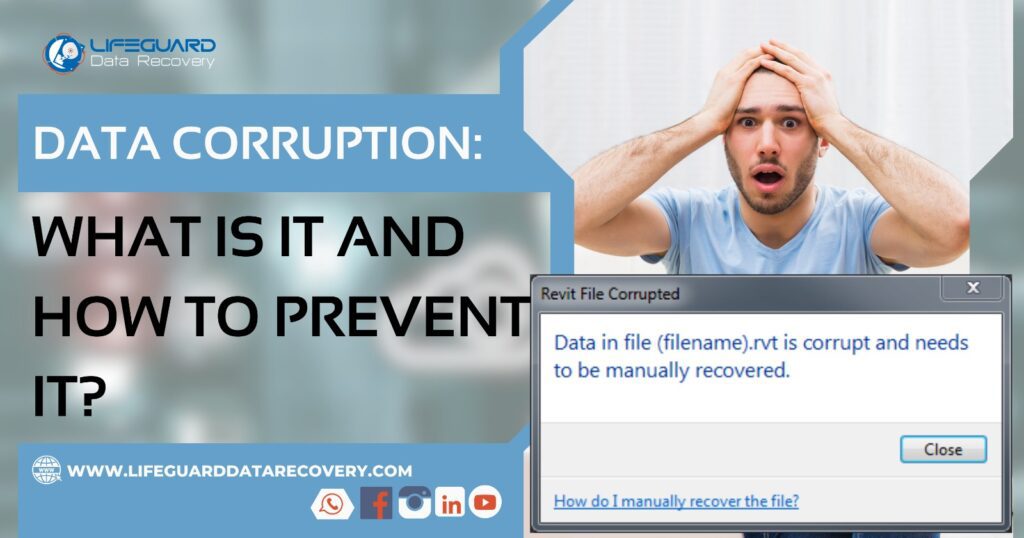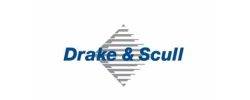Living a good life these days means having good storage and backup for all your data, be it your images, videos, work-related files, documents, etc. Now, how would one feel if all this data were to get corrupted? Terrible. Right!
However, it is a common phenomenon that no one denies. Data corruption has been making rounds of talks for years now and more than ever now. It is almost the most common reason behind a permanent data loss and the biggest lesson it teaches is the importance of data backup.
In this article, what is data corruption and what are its causes moreover, how can one prevent it, will be discussed. Data corruption is a vast topic and it can take days and days to know everything about it but one must start learning somewhere and this article could be that starting point for you.
What is Data corruption
Data corruption is an occurrence of error in opening and operating a file. When we notice any kind of anomaly in a previously stored and functional file due to any reason whatsoever while in the middle of an operation or a captive stored position, then that phenomenon is called Data corruption.
Some people confuse data corruption with data breach but that is a very different phenomenon. Data breach includes legal action against the doer whereas in most cases of data corruption, you never know who’s the doer.
It is a common occurrence but it can create a deep void of data loss that might never be able to fill itself back. A corrupted file often becomes inoperative and dysfunctional for the user.
Corrupted Data? Recover it Now!
Talk To Data Recovery Expert in Dubai for Free Consultation
Common symptoms of a corrupted file
Files whose data has been corrupted besides becoming inoperable, show these signs commonly indicating that something might be wrong with their configuration. The common signs are:
abrupt closing or freezing of file in operation or processing or computer screen blacking out or shutting down.
file showing abnormal activities inability to open the file or folder
crashing of program
sudden data loss
In recent times, the hard disks and other storage options have made a development in enhancement of bigger storage spaces and some studies suggest this might be a reason for the increased frequency of data corruption. Earlier, there were smaller pieces of data to be stored in hard disk devices so there were smaller chances of data loss but new hardware has become slightly more prone to data corruption.
There cannot be a more suitable road to walk on than the one that explains the causes of data corruption.
Data corruption causes
The list of causes of data corruption can go on and on but here are the most frequently occurring ones:
- Ejecting an external hard drive device without first turning it off or disconnecting it beforehand.
- Unknowingly giving access to your computer to malicious sites or pages that may be potential ransomware.
- Software failures such as link failure during picture editing or browsing or data transfer etc.
- Freezing or shutting down of the operating system.
- Broken and destroyed storage space devices.
- Inaccurate functioning of the system due to power outage.
- Failure of some hardware such as a motherboard or platter failure causes issues with the RAM.
- External factors such as overheating, water spill or disturbances with other external devices.
Now that we are aware of the causes of data corruption, we must also find ways to detect data corruption as it might help one to detect data corruption at an early stage.
Ways to detect Data Corruption
As we discussed before, there are certain symptoms that your system or PC shows before completely losing all its data and getting destroyed.
Here are some ways to detect data corruption:
- BSOD that is the regular blue screen of death
- Sudden system crash or blackening of the screen
- Crashing of software or show of irregular activities by the software that was not commanded
- File or folder name getting changed abruptly
- Slow or freezing functioning of the system
- Clicking noises while in operation
- Excessive heating of the hard disks
Usually, it’s noticed that the operating systems let their users know that the data is corrupted such as an alert or an alarm.
Nonetheless, the users complain that the alarm usually comes after the data has already been corrupted or lost irretrievably.
Therefore, instead of waiting for the operating system to notify you, you should try and catch the premature symptoms yourself.
One can also install and use apps that can help them detect a defect or use an Error-correcting code i.e., ECC to handle the circumstance.
Data Corruption? Recover it Now!
Talk To Data Recovery Expert in Dubai for Free Consultation
How to prevent data corruption?
Windows users can run a script that can eliminate all the unwanted changes from their file system but that isn’t the best way to prevent data corruption. There are some other ways too.
Not all data corruption is a case of data retrieval, sometimes it’s impossible to retrieve some pieces of data but here’s what you can do to prevent data corruption in the first place:
Data Backup
Backup all your precious pieces of data and keep an eagle’s eye on them at all times.
Regular backing up of data and rechecking its efficacy is the most reliable way to prevent data corruption because in this case, even if you lose your data because of data corruption you will still have a copy of it in perfectly fine condition.
Therefore, it’s also essential to keep your backup in a different location than your source site. Maybe you don’t need your entire file system at all times, in that case, you can only back up your important data to a safe and secure place and hope for the rest of it not to get corrupted either.
Different backup systems are also an economical way of keeping your data safe. You can have an online subscription for sensitive data and an offline location to store all your other data or vice-versa. It’s a win-win situation.
What one must keep in mind at all times, is to have regular tests of your backup system to see if it’s fulfilling its purpose properly or not.
Data Scrubbing
Not everyone would have heard of this method, but it’s a game changer. Data scrubbing also known as data cleansing is an effective method to jettison the unwanted or repeated items of data that are in the system taking up too much space and having a risk of carrying some malware or some other defects.
Data cleansing helps in removing excess copies of the same piece of data and data with different forms of defects such as numerical or verbal misleads, syntax errors or any other structural defectiveness. It also checks for duplicate, redundant and unwanted data. In our opinion, every person must adapt to the habit of data scrubbing.
Good antivirus software
Installing a good antivirus software is the best gift you can give to your system. This antivirus software keeps your system safe from online virus attacks, ransomware threats and many more. Ransomware is a common activity adopted by some people to earn money or destroy some data through illegal ways so one must keep one eye open to look out for these things.
Losing bytes and bytes of data to some carelessness is not an ideal move to make thus, this article hopes to have provided enough insights on how to detect and prevent data corruption.





















